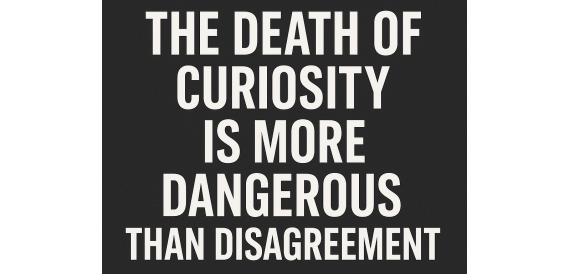
For some time, I’ve been a regular on RNZ’s The Panel. It’s a lively hour: serious debates, light-hearted stories, and interviews expertly steered by Wallace Chapman.
On 15 September, I joined Wallace and Simon Wilson. Gaza came up. Simon and I had different views—sometimes sharply so. But we listened, we exchanged, we disagreed. To me, that’s what a healthy conversation sounds like.
Feedback poured in afterwards, for and against what I said. No problem—that’s healthy debate.
But here’s the problem: some called for me to be taken off air altogether. To be denied a platform simply because they didn’t like my views.
That's not critique. That's a demand for erasure.
When we punish difference instead of debating it, we risk something greater than hurt feelings—we risk the death of curiosity. We replace dialogue with echo chambers. We trade the contest of ideas for the comfort of conformity.
And worse: people begin to self-censor. They weigh every word not for truth to thoughtfulness, but for whether it might spark retaliation or calls for their removal. Fear shrinks the space for dialogue and understanding long before any microphone is switched off.
An open society depends on the space to speak, to listen, to challenge. It depends on resisting vicious retaliation. And it depends on recognising that the loudest voices are not always the truest.
We don’t have to agree with each other. But if we cannot tolerate disagreement, then we have more to fear than the opinions themselves.
Oh and if you want to hear what I had to say on RNZ: https://www.rnz.co.nz/national/programmes/thepanel/audio/2019004519/the-panel-with-deborah-hart-and-simon-wilson-part-1 and https://www.rnz.co.nz/national/programmes/thepanel/audio/2019004520/the-panel-with-deborah-hart-and-simon-wilson-part-2

 RETURN TO ALL
RETURN TO ALL